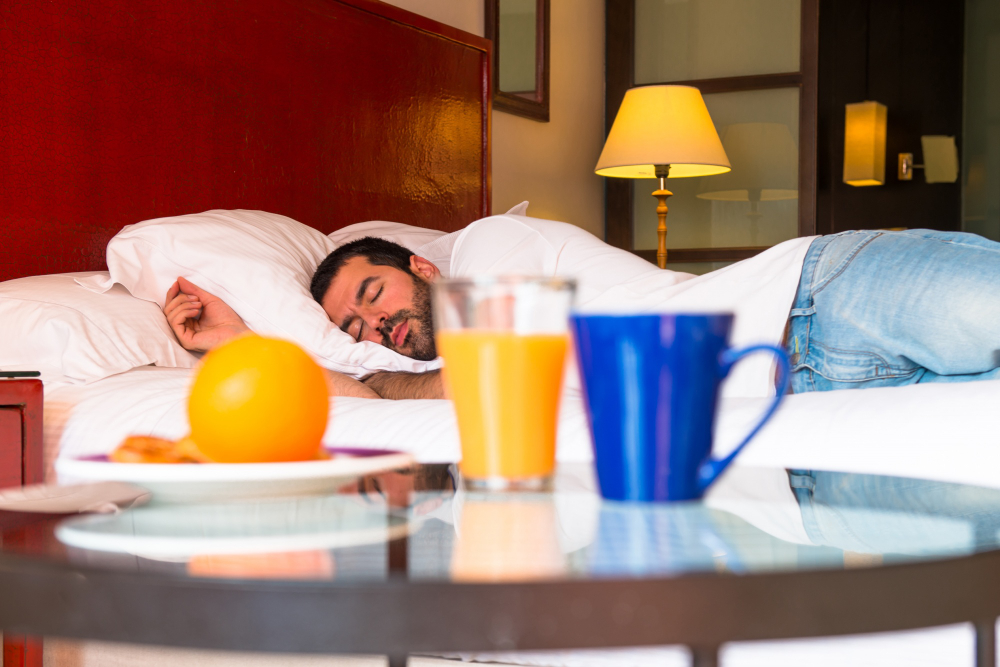
Students have complained about homework for generations. Be honest. You probably made a gripe or two yourself in high school. As it turns out, teens actually do have a real problem with it.
While there is evidence that doing schoolwork outside of the classroom leads to academic achievement, the Better Sleep Council found that high school students have an unhealthy relationship with homework that’s impacting their sleep and vice versa.
The leading cause of stress
In a recent study conducted by the Better Sleep Council, three-fourths of teens (75%) said grades and test scores caused stress. It was the most commonly cited stressor. Homework ranked second (74%), only slightly behind scholastic performance as a stress trigger. Shockingly, academic-related stress is far more common than peer pressure (36%) or even bullying (15%).
So, while well-intentioned adults create public service campaigns promoting the importance of self-esteem and champion efforts to combat cyberbullying, teens report having the most trouble dealing with a widely sanctioned activity happening right in our homes, every night. That’s some surprising irony.
Homework overload
The concept of giving students after-school assignments intends to help improve academic achievement, self-discipline and independent problem solving skills. All good things, as anyone would agree. But in the case of homework, there is too much of a good thing.
The National Education Association (NEA) recommends 10 minutes of homework for each grade level. First graders should get 10 minutes of homework each night, while sixth graders would have an hour and seniors in high school would have 2 hours. Beyond that, students experience diminishing returns and elevated stress.
However, our research finds more than one-third of students (39%) spend 3+ hours on homework in a typical school night. Compared to the NEA recommendations, that means students may be experiencing the equivalent of 50% more stress with little to no academic benefits! And with only 24 hours in each day, what gives when the school day, homework and other activities, like sports or part-time jobs, compete for attention?
The dangers of pulling an all-nighter
Unfortunately, teens sacrifice sleep in an effort to get it all in. Only 21% of students surveyed reported getting the 8-10 hours of sleep recommended for teens by the Centers for Disease Control. An alarming 12% get 4 hours of sleep or less on a typical school night.
“If I go to bed before 1:30 a.m., I feel like I’m slacking off.” – Survey Respondent
Many reports have detailed the consequences from a lack of sleep, from increased levels of depression and weight gain to a higher rate of auto accidents.
When it comes to academics, the result of less sleep for one night is often more difficulty concentrating and comprehending new information the following day. In turn, many students burn the midnight oil trying to catch up with home studies. This vicious cycle leads to yet another night of inadequate rest.
Better sleep, better grades
According to studies by Sleep Medicine Reviews, students with higher grades report more total sleep and earlier bedtimes on school nights. Conversely, students show a decline in academic performance when sleep is restricted.
Clearly, student learning capacity and academic performance are closely related to the quality and quantity of sleep.
Balancing school and sleep
In an effort to help teens get the sleep they lack, a few enlightened teachers have implemented “no homework” policies. Some school districts have set later start times for high school. (Harvard University has even started a mandatory “Sleep 101” class to increase the awareness of sleep and reverse some poor sleep habits for incoming freshmen.)
While educator policies may be out of your hands, you can control what happens at home. Here are some practical ideas to help you reinforce the importance of sleep:
- Help your teen plan their daily schedule so they budget enough time (8-10 hours) for sleep each night.
- Designate the bedroom for sleeping only. Create a dedicated space outside the bedroom for homework. Relocate the TV and gaming system from their room.
- Update their sleeping surface. Worn-out, hand-me-down mattresses can cause restless nights.
- Don’t contribute to their stress. Remind them that you’ll be proud of them as long as they do their best.
Sources:
- http://time.com/4466390/homework-debate-research/
- http://neatoday.org/2015/09/23/the-great-homework-debate-whats-getting-lost-in-the-hype/
- https://pdfs.semanticscholar.org/d7b2/050c9cf9fbfdeb7bd808a57838fea6979837.pdf
- https://news.harvard.edu/gazette/story/2018/08/sleep-101-aims-to-counter-college-culture-of-sleeplessness/
- https://pdfs.semanticscholar.org/d7b2/050c9cf9fbfdeb7bd808a57838fea6979837.pdf
This blog provides general information about sleep and sleep products. The words and other content provided in this blog, and in any linked materials, are not intended to replace a one-on-one relationship with a qualified heath care professional. This blog should not be construed as medical advice or used to diagnose, treat, prevent or cure any disease or condition. If the reader or any other person has a medical concern, he or she should consult with an appropriately-licensed physician or other health care professional. This blog is not a substitute for professional medical advice, diagnosis or treatment, and should not be relied upon to make decisions about your health or the health of others. Never disregard professional medical advice or delay in seeking it because of something you have read on this blog or elsewhere on bettersleep.org. If you think you may have a medical emergency, immediately call your doctor or dial 911.



